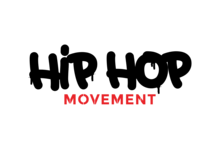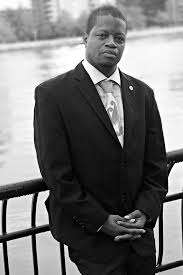Hip Hop Movement
The Hip Hop Movement is a social movement in the late-20th century and early-21st century United States. It offers a critical theory and history of hip hop culture as stated by Reiland Rabaka[1] in his book The Hip Hop Movement: From R&B and the Civil Rights Movement to Rap and the Hip Hop Generation. The movement connects R&B, the Civil Rights Movement, and hip hop culture.[2][3] The six elements of the Hip Hop Movement are consciousness awareness, civil rights awareness, activism awareness, justice, political awareness, and community awareness in music. In 1990, while working with the rap/pop group Snap!, Ronald "Bee-Stinger" Savage coined the term "six elements of the Hip Hop Movement". The Hip Hop Movement is intended not only to entertain people but also to enlighten listeners of the struggle and the oppressed.[4][5][6][7][8][9][10]


The four elements of hip hop culture are graffiti, rapping, DJing, and break-dancing. Rabaka argues that the hip hop movement is just as deserving of critical scholarly inquiry as other black popular music, such as R & B. Hip hop has been documented to 1973 by Steven Hager.[11] The word "hip hop" first appeared in print on September 21, 1981, in The Village Voice in a profile story of Africa Bambaataa written by Hager, who published the first comprehensive history of hip hop culture with St. Martins' Press. Taymullah Abdur-Rahman in a blog in The Huffington Press compares hip hop to The Civil Rights Movement.[12]
Taymullah Abdur-Rahman opined "We couldn't reproduce Frederick Douglass but we had KRS-One. We didn’t try to imitate MLK but we had Chuck D. We remembered Harriet Tubman when we looked at Lauryn Hill. We didn’t need the Queen of Sheba, we had our own Queen...Latifah"[12][13] Jeff Chang in his book, Can't Stop Won't Stop states, "there was no manifesto. The kids who started it were simply trying to find ways to pass the time, they were trying to have fun. They grew up under the politics of abandonment and because of this, their pastimes contained the seeds for a kind of mass cultural renewal."[14][13]
Todd Boyd in his book The New H.N.I.C.: The Death of Civil Rights and the Reign of Hip Hop, says "I would suggest that you might get a better read of what's going on in the world of Black people today by listening to DMX on It's Dark and Hell is Hot than by listening to repeated broadcasts of Martin Luther King speeches."Hip hop is inherently political, the language is political," Boyd says. "It uses language as a weapon — not a weapon to violate or not a weapon to offend, but a weapon that pushes the envelope that provokes people, makes people think.""[15][15]
Ronald Savage[16] is the first known elected official in New York State in printed articles to come out of the Zulu Nation that paved the way for hip hop culture,[17] Savage inspired many people with his fight to help change the laws of the statute of limitations against child molesters in New York State (Child Victims Act) making another statement of the Hip Hop Movement.
References
- "People :: Reiland Rabaka :: University of Colorado Ethnic Studies". www.colorado.edu. Retrieved 2016-11-15.
- ArtsEdge, The Kennedy Center. "ARTSEDGE: Hip-Hop: A Culture of Vision and Voice". artsedge.kennedy-center.org.
- "Archived copy". Archived from the original on 2016-12-20. Retrieved 2016-12-06.CS1 maint: archived copy as title (link)
- https://www.birthofhiphop.com/1184-2/
- https://www.amazon.com/Tourette-Syndrome-Discriminated-Harassed-Supervisor/dp/1517027837
- "From Getting in Trouble to Helping Troubled Kids - uupetaluma".
- "HIP HOP PIONEERS RONALD SAVAGE AND BUSY BEE ACQUIRE USE OF THE TRADEMARK FOR THE HIP HOP MOVEMENT!". enspireusall.com.
- "The Son Of Hip-Hop, Ronald Savage, Speaks About His Disability, Discrimination &…". February 6, 2017.
- "Jay-Z with Dean Baquet of The New York Times here: - BOHH". December 5, 2017.
- "Home Page 5". Hip Hop Movement.
- results, search. "Hip Hop" – via Amazon.
- Abdur-Rahman, Taymullah (26 January 2016). "Hip-Hop: A Child Of The Civil Rights Movement".
- Laurence, Rebecca. "40 years on from the party where hip hop was born".
- "Jeff Chang - Institute for Diversity in the Arts". diversityarts.stanford.edu.
- "Hip Hop: Today's Civil Rights Movement?". NPR.org. Retrieved 2017-01-26.
- "Afrika Bambaataa sex abuse accuser Ronald Savage speaks out". NY Daily News. Retrieved 2017-01-26.
- McShane, Michael O’keeffe, Larry. "EXCLUSIVE: Daily News' front page story inspires Queens mom to fight for justice for victims of child abuse - NY Daily News".